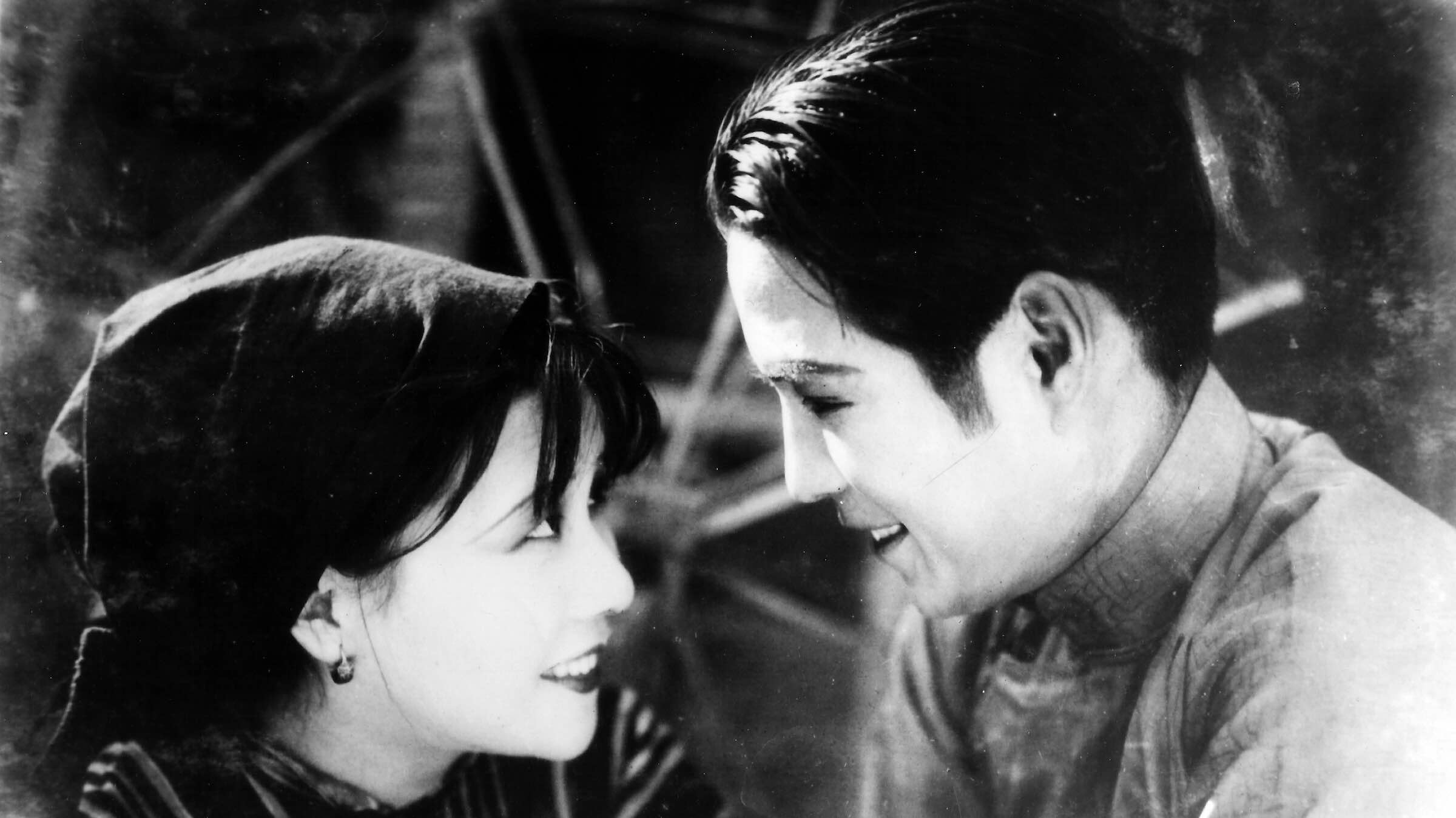Ruan Lingyu, the ill-fated star of The Peach Girl, lived a life that could have been lifted from one of her films. Born into an impoverished family from Guangdong province, she is a native of Shanghai, a city that promised jobs to China’s rural poor and later became known as the Hollywood of the East. She achieved instant stardom and inspired a fanatical devotion from the moviegoing public. But the beloved Lily Yuen, as she was also known, who had portrayed so many tragic women in movies, was dead at the age of 25, from deliberate overdose of sleeping pills. Her funeral was attended by tens of thousands of adoring fans. Enraptured by her celebrity and distraught by her death, three women killed themselves in tribute, leaving suicide notes despairing that life was no longer worth living without Lily Yuen.
Since the first screening of Lumière actualités at the Xu Yuan teahouse on August 11, 1896, Shanghai had been at the center of the Chinese film industry. Although a fragmented China was contending with feudalism, civil strife, the greed of Western powers, and invasions by Japanese military, Shanghai somehow remained a thriving, cosmopolitan city.
Ruan Lingyu came to Shanghai in 1921, a year of terrific growth in the Chinese film industry—140 production companies registered as new businesses in Shanghai that year alone. Just 16 years old and with no formal training, she auditioned for Bu Wancang, a young director at the Mingxing (Star) Film Company. He hired Ruan without hesitation, based purely on her screen presence.
Chinese cinema in the 1920s was drawn mostly from a style of popular fiction known as Mandarin Ducks and Butterflies (Yuanyang hudie), which consisted of melodramatic love stories, martial arts, and murder mysteries. After a year of playing small parts in a series of these Mandarin Ducks and Butterfly films, Ruan’s career took off, and she was given her first leading role.
Problems, however, took root in her personal life. Ruan’s husband, who was abusive and irresponsible, left her and their adopted daughter, but continued to rely on Ruan’s financial success to bail him out of trouble. She agreed to support him privately in order to avoid shameful publicity.
Just as in Hollywood, Chinese production companies learned the value of promoting popular stars like Ruan Lingyu in movie magazines with doctored tales of real life that the stars were expected to emulate. This studio practice placed great demands on her, exacerbating her personal troubles.
In the 1930s, the social and political climate in China changed. Chiang Kai-shek and Koumintang seized Shanghai and began consolidating their power throughout China. Censorship became a priority for the new government as soon as it realized the influential role of movies in shaping public opinion. A review board similar to the Hays office in Hollywood was established to approve screenplays and films.
Those with opposing political ideologies were also beginning to see the potential for social change in films. Luo Mingyou, founder of the largest production company in China at the time, Lianhua Studios, hoped to improve the lives of the Chinese people by making films that rejected Western influences and emphasized China’s own rich cultural history. He replaced the Mandarin Ducks and Butterfly films with rural dramas that depicted the corrupting effect of Western ideas and the often tragic results. The Peach Girl, also known as Peach Blossom Weeps Tears of Blood, is one example of Mingyou’s efforts.
Ruan Lingyu thrived in this socially conscious environment. Her natural ability “to evoke passion in her every expression,” as one contemporary reviewer noted, won the hearts of filmgoers. She worked with the most respected directors and the most popular actors, such as her costar in The Peach Girl, Jin Yan.
The Peach Girl foreshadows Ruan’s own unhappy end, with its tale of a country girl seduced by the promise of a love that leads only to her ruin. Following the success of The Peach Girl, considered by many contemporary critics to be Lianhua Studios’ best film, Ruan fell in love with a wealthy tea merchant. Unfortunately, he turned out to be just as unfaithful and abusive as her first husband, who reappeared at this time and attempted to sue her for more money. All of it was reported in the insatiable tabloids, compounding her personal and legal problems.
On the night of March 7, 1935, after attending a studio party, Ruan Lingyu prepared a bowl of rice porridge containing 30 barbitone-sodium pills. She composed two suicide notes, one for her boyfriend and one for the media. In her note to the press, she lamented her situation as a public figure, writing that “gossip is fearful.”
Tragedy may have followed Ruan Lingyu both on-screen and off, but her fans were always devoted to her, even now. In 1992, the celebrated Hong Kong director Stanley Kwan created the cinematic paean Actress (Centre Stage), and, as recently as 1998, the city of Shanghai erected a statue in her honor.
Presented at SFSFF 2000 with live music by Kevin Purrone

